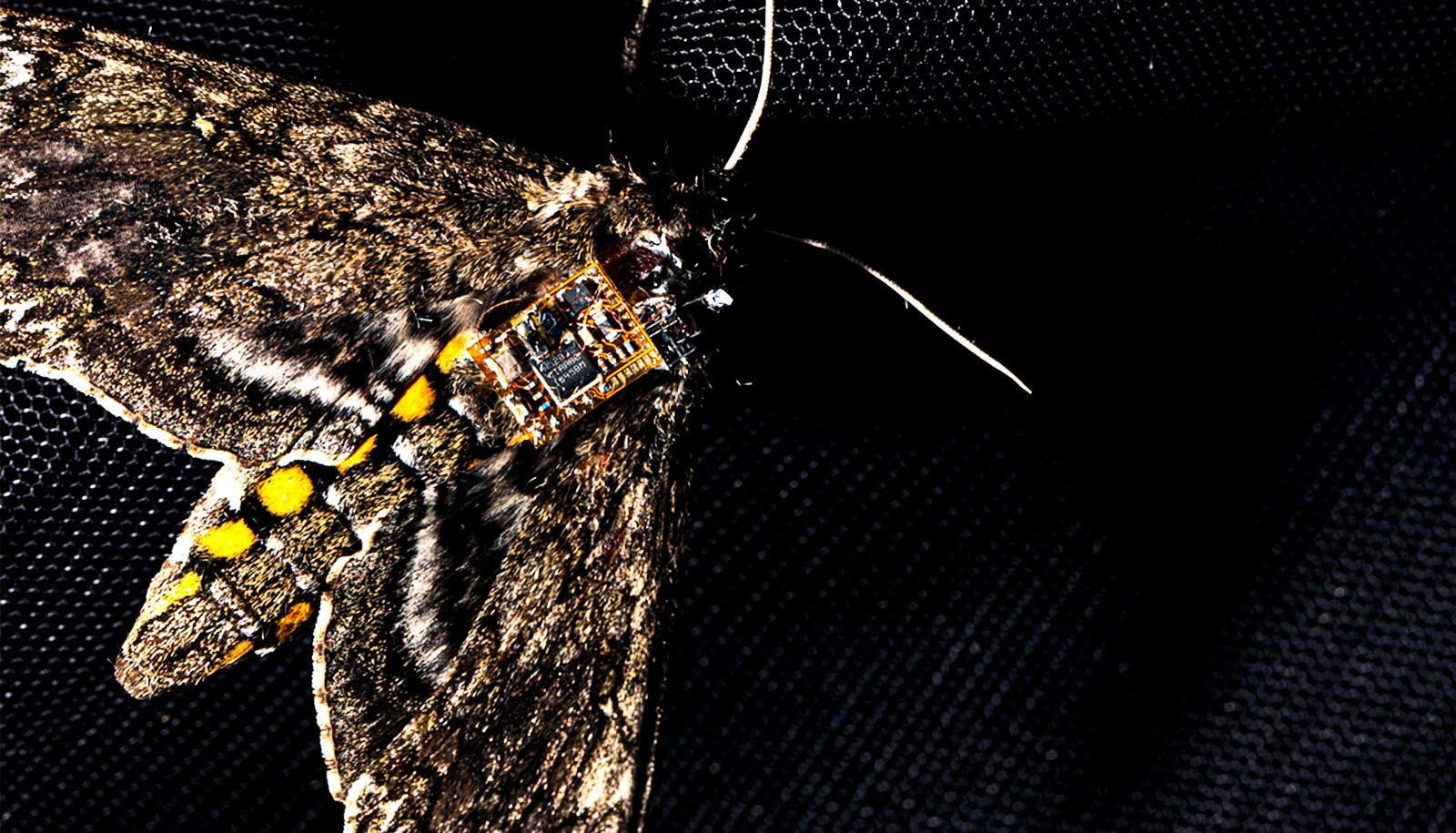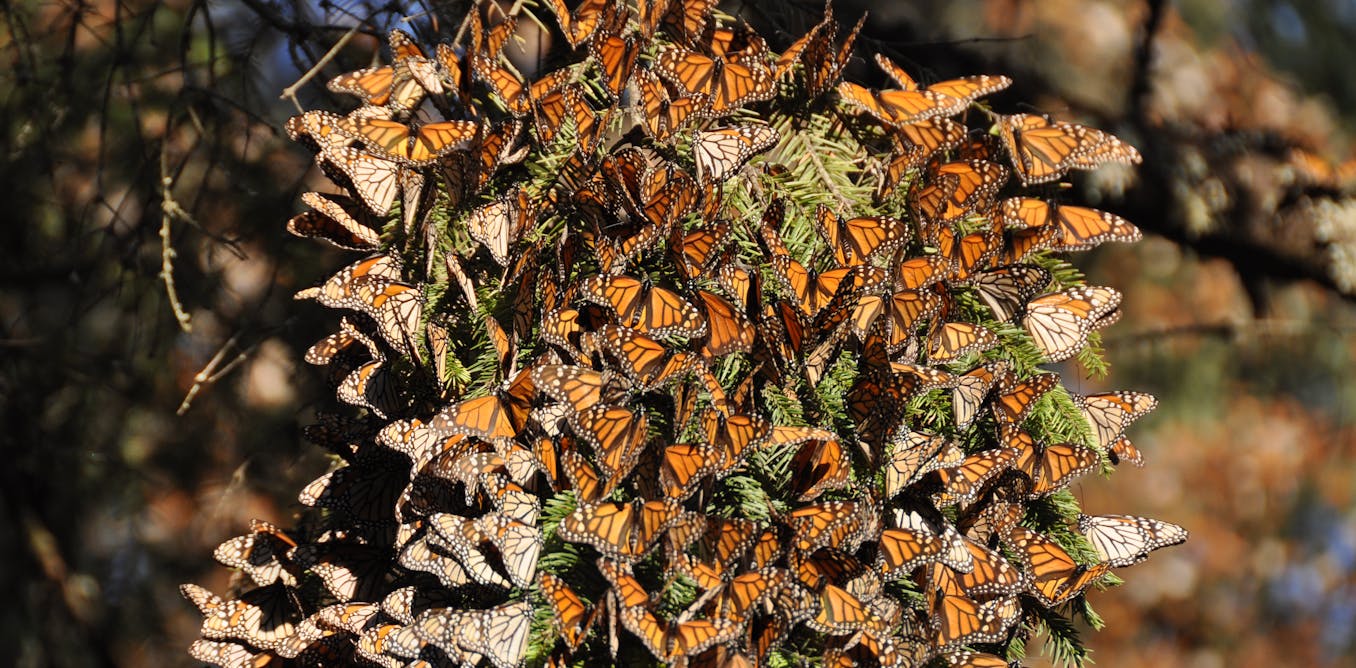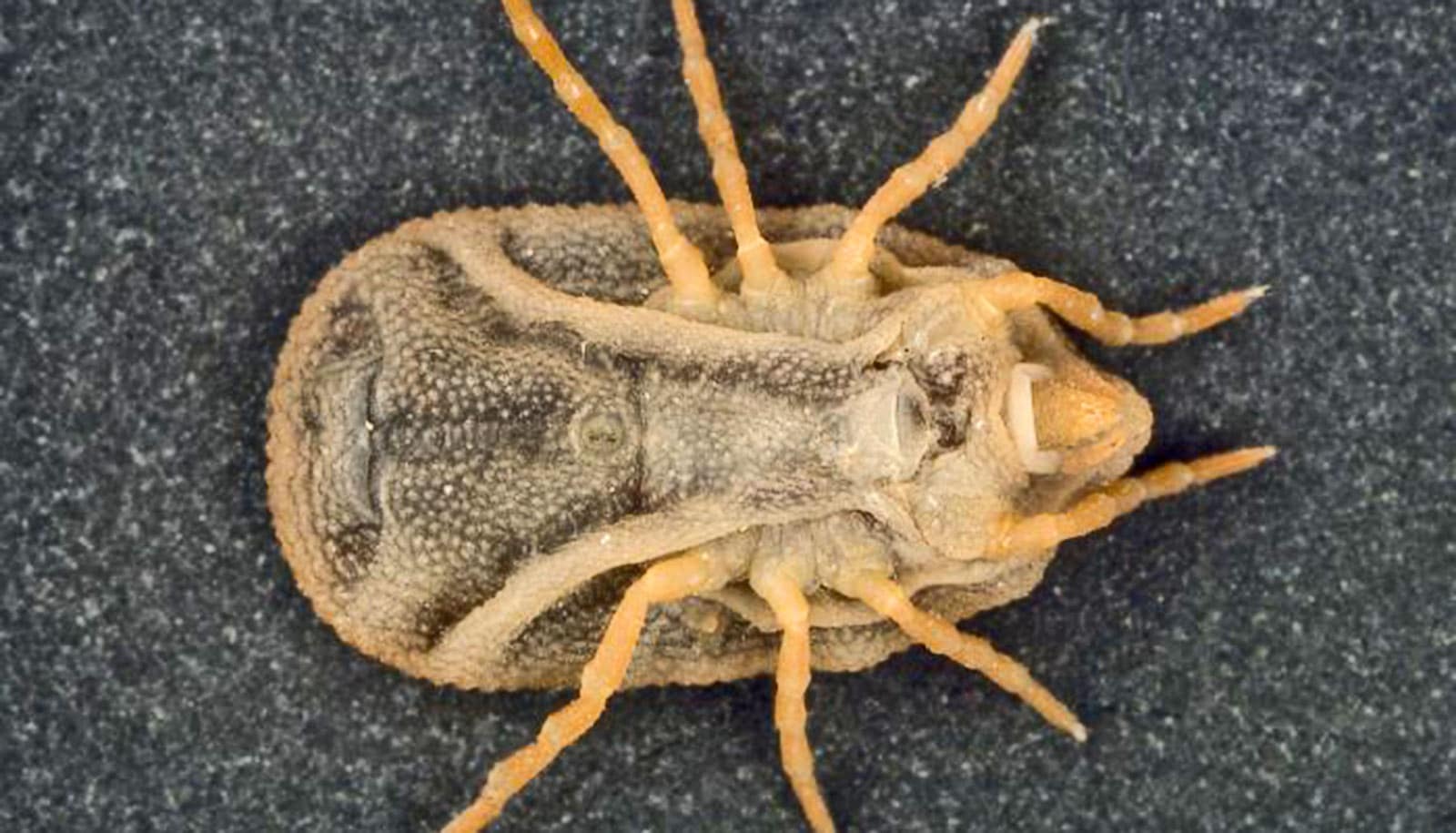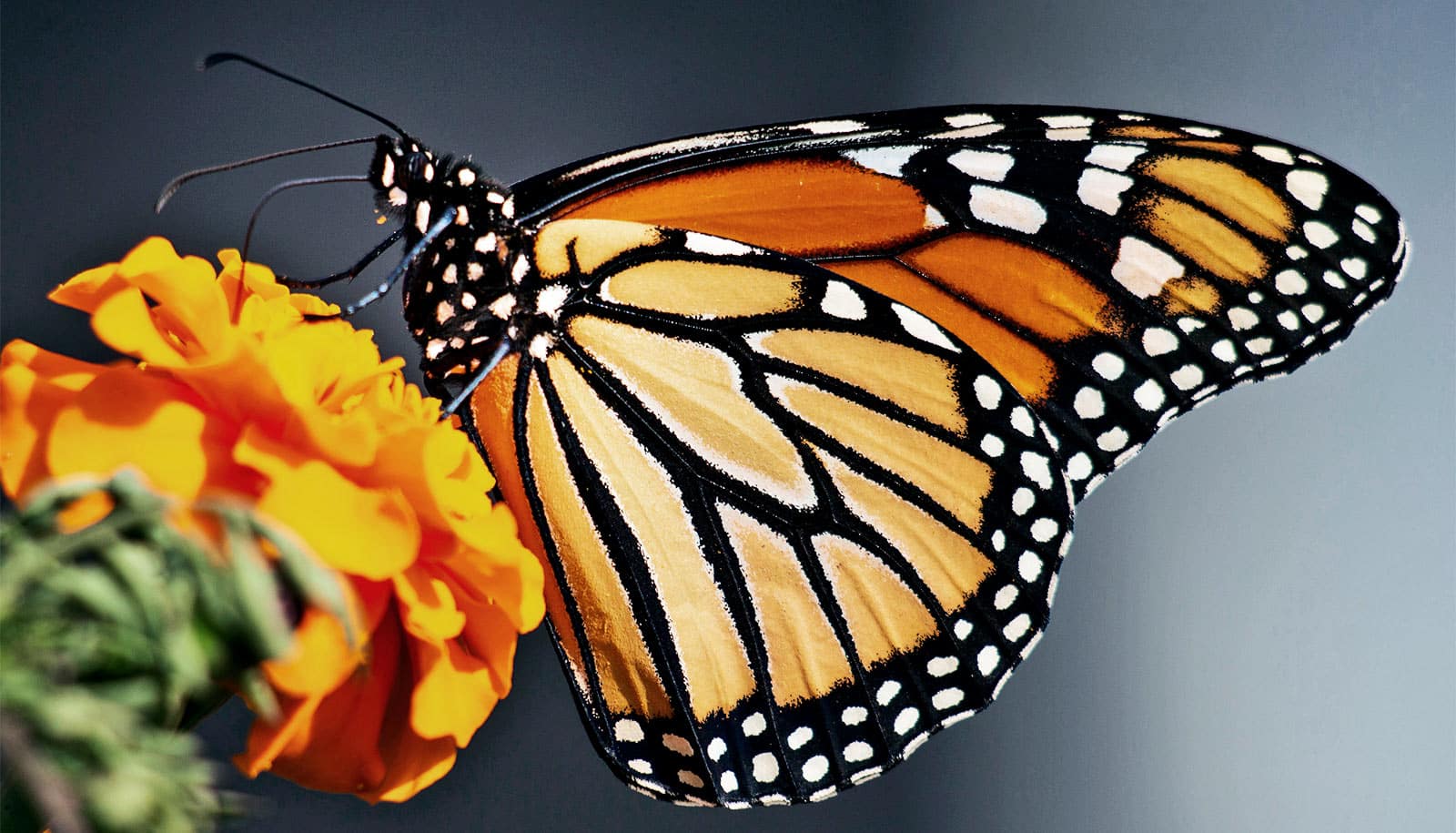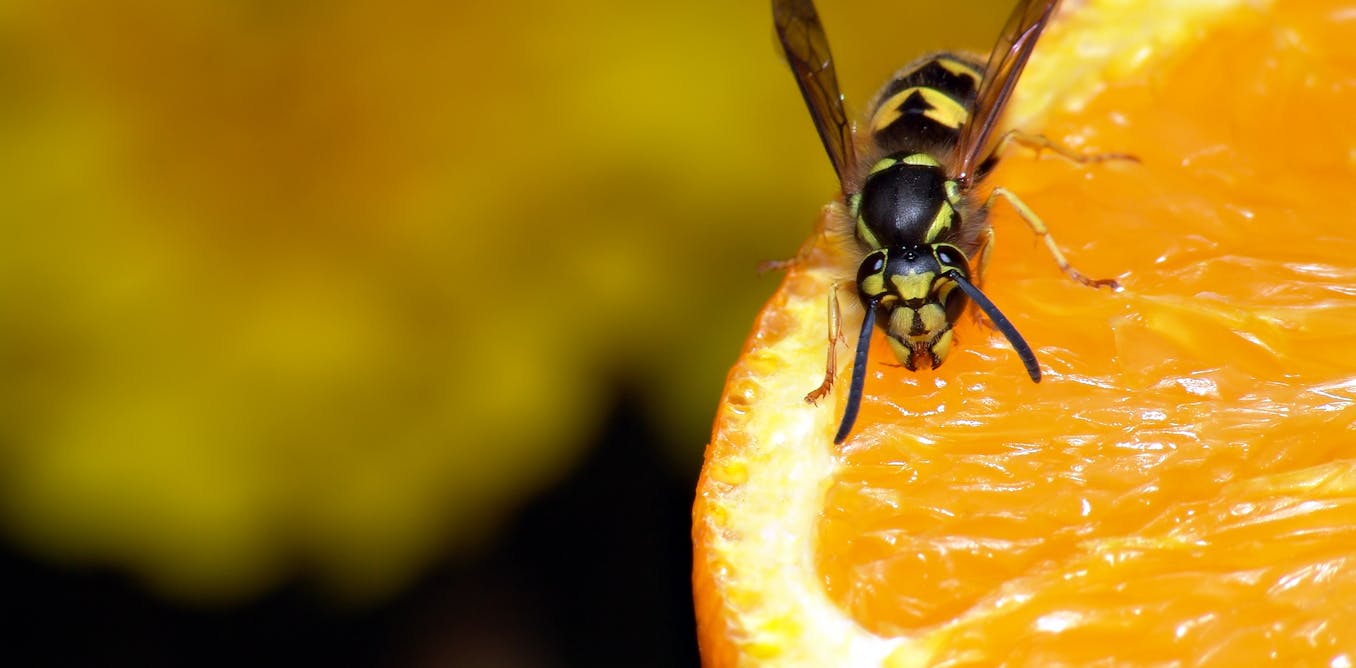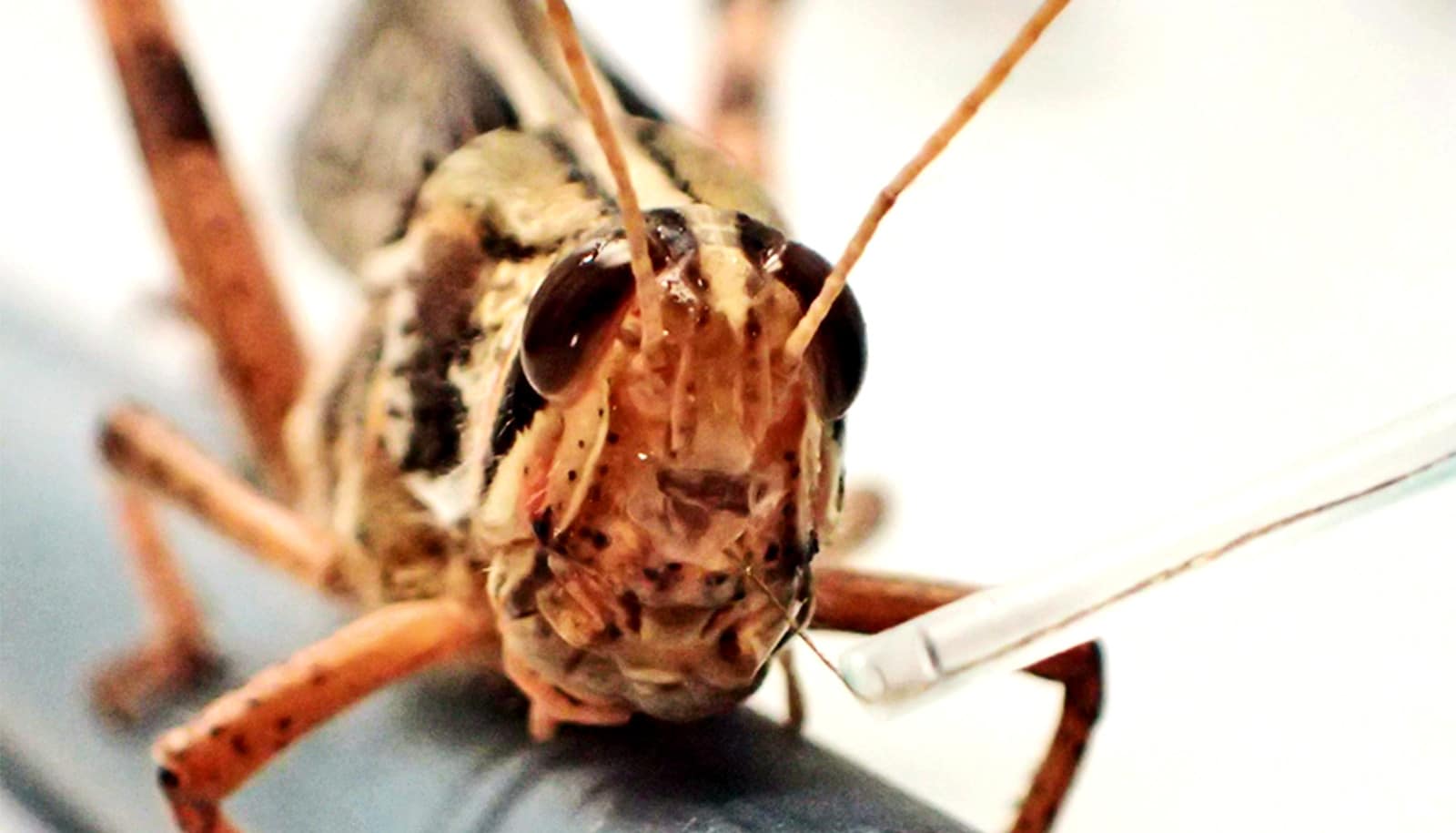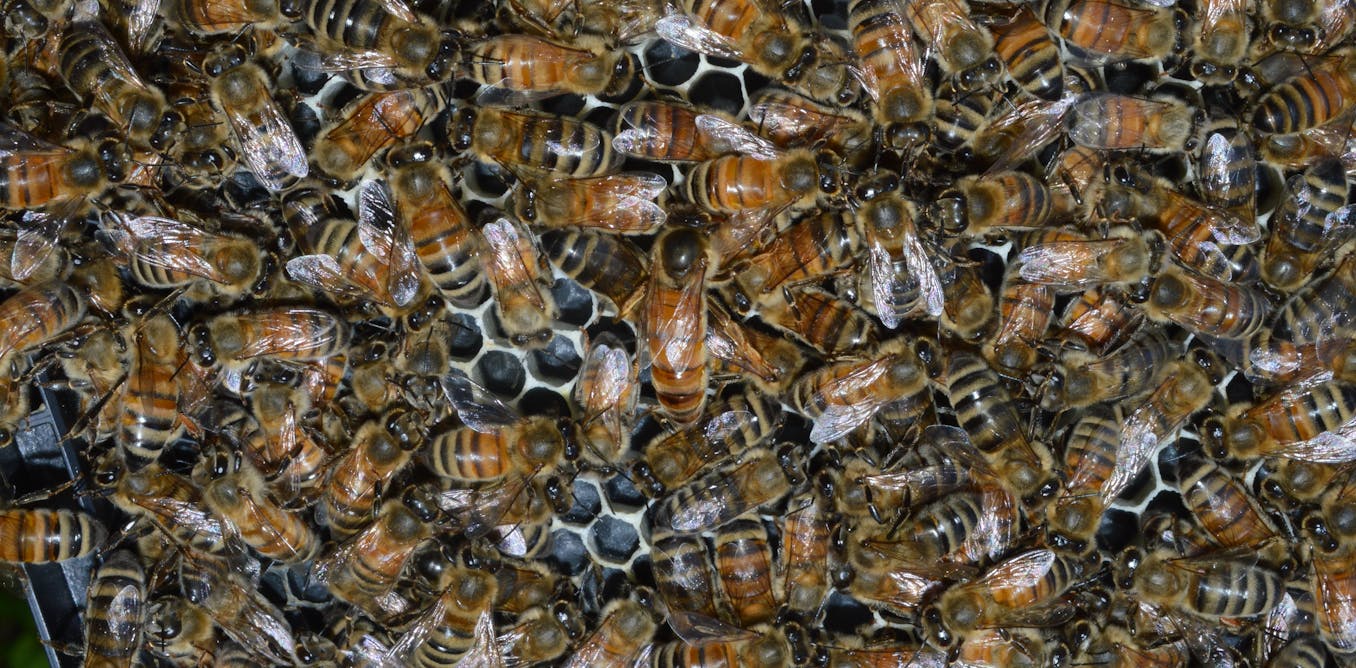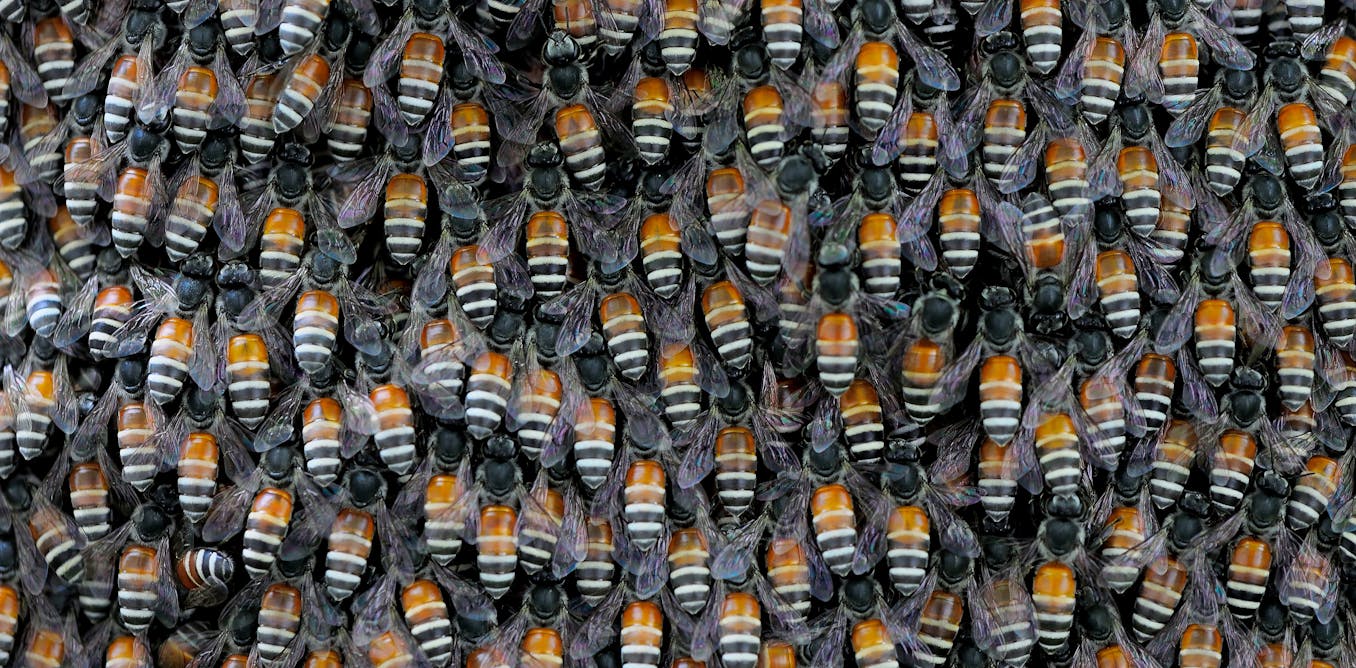Some bees are born curious while others are more single-minded – new research hints at how the hive picks which flowers to feast on
New research suggests individual bees are born with one of two learning styles – either curious or focused. Their genetic tendency has implications for how the hive works together.
Chelsea Cook, Assistant Professor in Biology, Marquette University •
conversation
Oct. 5, 2020 • ~7 min
Oct. 5, 2020 • ~7 min
Monarch butterflies' spectacular migration is at risk – an ambitious new plan aims to help save it
Can a plan that brings together government and private landowners create enough habitat for monarch butterflies?
D. André Green II, Assistant Professor of Ecology and Evolutionary Biology, University of Michigan •
conversation
Sept. 18, 2020 • ~9 min
Sept. 18, 2020 • ~9 min
/
36

